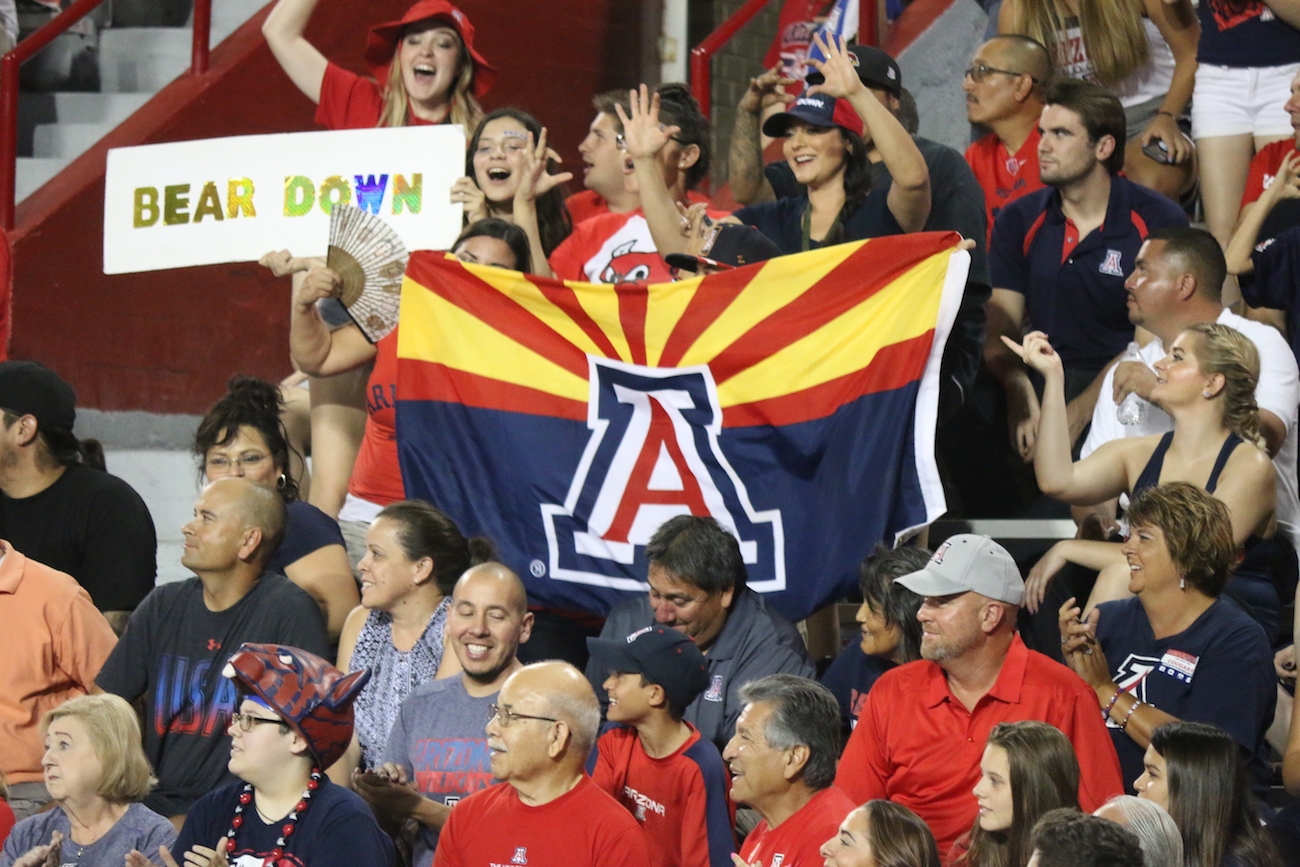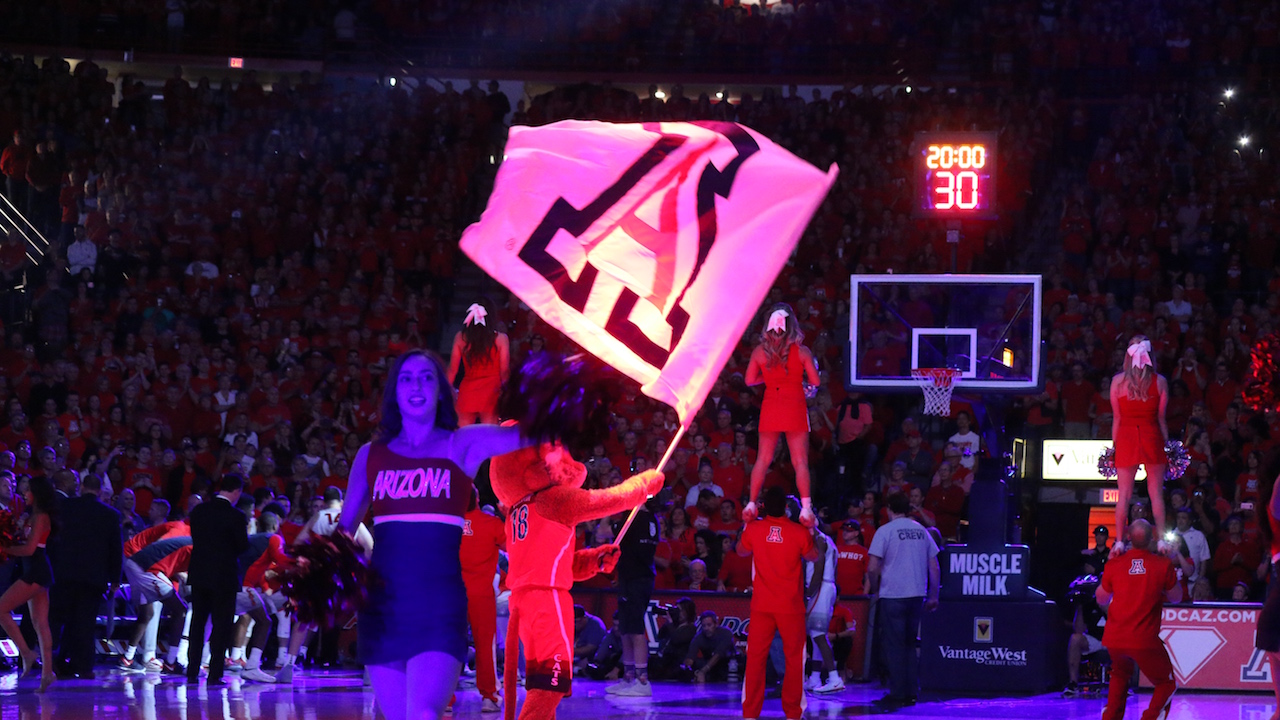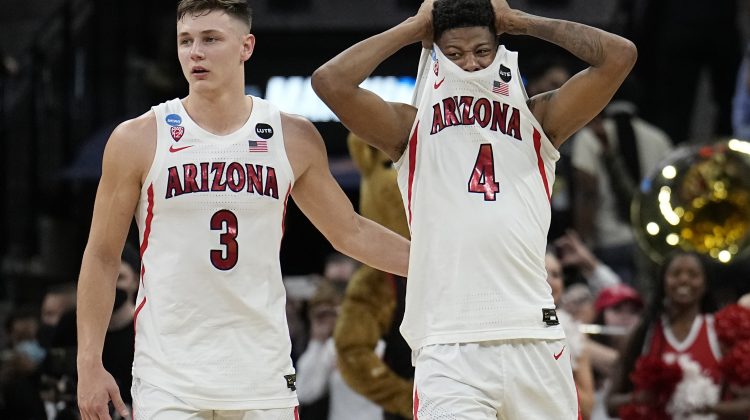Instant reaction to Pac-12 developments on the court …
1. Everything, and nothing
The end of the Pac-12’s participation in the 2022 NCAA Tournament was abrupt, unsatisfactory, unceremonious or disappointing … or all four and more.
The one thing it wasn’t: predictive.
We know this because what happened last March had no bearing whatsoever on this season.
The Pac-12 put five teams into the 2021 tournament, advanced four to the Sweet 16, three to the Elite Eight and one to the Final Four — one of the greatest collective performances in conference history.
And that momentum didn’t last through November.
Once the 2021-22 season began, mediocrity followed.
The Pac-12 went 2-11 against AP top-25 opponents and won just 67 percent of its non-conference games, setting the foundation for three meager bids on Selection Sunday.
Then No. 7 seed USC bowed out in the first round, top seed Arizona went down without much fight Thursday in the Sweet 16 and fourth-seeded UCLA ran aground a day later in the final minutes of its showdown with North Carolina.
Three teams in the field, three losses to lower seeds, and no teams in the Elite Eight.
Decidedly suboptimal for a Power Six conference.
What will next season bring? Any number of outcomes, but what happened in the NCAAs will stay in the NCAAs.
There’s no carryover from one tournament to the next regular season. Nor, it seems, it there carryover from the regular season to the tournament.
The ACC had a down season but put three teams in the Elite Eight.
The Big Ten had a stellar season and put no teams in the Elite Eight.
Given the past five months, the lack of dots to connect is good news for the Pac-12.
2. Money matters
The Pac-12 collected seven units for its efforts in March madness. That translates to $14 million over time based on the NCAA’s distribution of performance-based revenue.
Here’s how it works:
— Every game played, except the championship, goes on the books as a unit earned. USC played in one game, UCLA and Arizona three each — that’s seven units.
— Those units are carried forward for six years (starting next spring) with an ever-increasing annual value.
— Each unit will be worth $340,000 next year. That’s $2.4 million in total.
Over the course of the six-year payout cycle, each unit collected will carry a future value of approximately $2 million for the conference.
So seven units translates to $14 million over time, to be split evenly among the 12 schools.
3. Arizona’s ouster
Watching the game without knowing the seeds, you would have thought Arizona was the No. 5 and Houston the No. 1.
The Cougars led for the entire game and by double digits for the majority of the stretch run.
On Friday, the Hotline attempted to explain why that was the case. In summary, it wasn’t one thing; it was a handful of things, including:
The injury to Arizona point guard Kerr Kriisa; a poor matchup that exposed the Wildcats’ flaws (to name one: the lack of NCAA experience); an under-seeded opponent; and the inflated expectations for Arizona that were rooted in its dominance of a mediocre conference.
The Wildcats needed overtime to repel the No, 8 seed (TCU) in the second round and then were dispatched by the No. 5 in the Sweet 16.
That’s fairly strong evidence they were the one-eyed team in the conference of the blind.
4. UCLA’s empty finish
The Bruins led North Carolina by four points with 5:44 remaining.
They were outscored 17-6 the rest of the way.
Both numbers are problematic: They couldn’t stop UNC guard Caleb Love, and they couldn’t manufacture baskets themselves. That’s where the game was lost.
At the risk of oversimplifying, we saw it this way: The Johnny Juzang of ’22 was not the Johnny Juzang of March ’21.
Anytime they need a basket last year during the Final Four run, Juzang delivered.
Friday night, he struggled down the stretch — and nobody else filled the void when it mattered most.
Instead, UNC’s Love played the part of late-game shot-maker, draining two gargantuan 3-pointers as part of his 30-point masterpiece.
So often, survival in March comes down to a handful of sequences with 45, 60 or 75 seconds remaining that tilt the advantage to one team and force the other into must-foul mode.
This time, UCLA couldn’t make quite enough plays.
5. Our theory of everything
Success in the NCAA Tournament depends on toughness (mental and physical) and on guard play. That’s it, folks. Highly-skilled big men aren’t the prime movers of advancement.
For evidence, we present Gonzaga (Chet Holmgren and Drew Timme), Auburn (Jabari Smith), Illinois (Kofi Cockburn) and Kentucky (Oscar Tshiebwe).
None of them made it out of the Sweet 16.
In March, it’s all about the guards, especially the point guards: Players who create baskets for themselves or their teammates, break down set defenses and get to the foul line when all else fails.
USC was outplayed on the perimeter by Miami. So was UCLA (in the final minutes) by North Carolina and Caleb Love. Arizona had no answers for Houston’s perimeter, particularly Jamal Shead.
And the same fate befell Gonzaga — if we expand our sweep to include another West Coast team — which wasn’t up to the task on the perimeter against Arkansas
(The difference for the Zags this year as compared to last? We’d argue it starts with the absence of point guard Jalen Suggs.)
Nor were the Zags and the Wildcats tough enough against their opponents when it came to fighting for position, for rebounds and, especially, for the 50-50 balls.
Houston and Arkansas corralled every loose ball, out front or underneath.
They were the aggressors from start to finish.
Arizona and Gonzaga played like they wanted to win. The Cougars and Hogs played like they had to win.
Are players from the West Coast tough enough?
Are international players tough enough?
Neither explanation seems satisfactory. After all, UCLA and Gonzaga were in the Final Four a year ago.
Most likely, the shortcomings displayed over the past four days by the best of the West were specific to those teams this year.
For as we’ve seen, one March doesn’t correlate to the next.
Support the Hotline: Receive three months of unlimited access for just 99 cents. Yep, that’s 99 cents for 90 days, with the option to cancel anytime. Details are here, and thanks for your support.
*** Send suggestions, comments and tips (confidentiality guaranteed) to pac12hotline@bayareanewsgroup.com or call 408-920-5716
*** Follow me on Twitter: @WilnerHotline
*** Pac-12 Hotline is not endorsed or sponsored by the Pac-12 Conference, and the views expressed herein do not necessarily reflect the views of the Conference.
Related posts:

(AP Photo/Rick Scuteri, File)
Wilner Hotline – Jon’s Brackets, Battle of Wildcats for NCAA Title The Tate Show, Wildcats beat UCLA
The Tate Show, Wildcats beat UCLA  Wilner Hotline – Pac-12 basketball: Winners and losers from NBA Draft decisions, transfer portal moves and even old-fashioned recruiting
Wilner Hotline – Pac-12 basketball: Winners and losers from NBA Draft decisions, transfer portal moves and even old-fashioned recruiting  Pac-12 Preview: Heisman Trophy outlooks, FOX airtime, another interim, AP rankings update and more
Pac-12 Preview: Heisman Trophy outlooks, FOX airtime, another interim, AP rankings update and more
